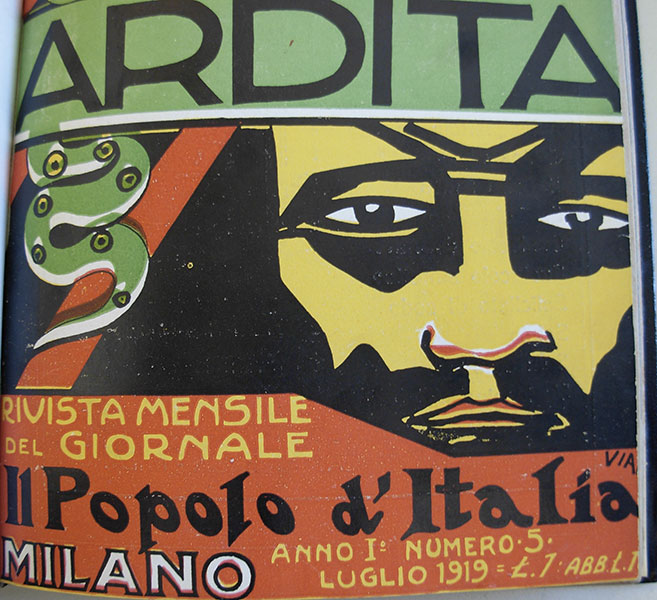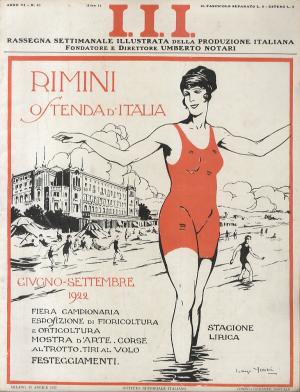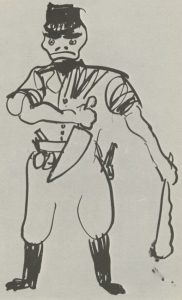I just published the essay “Edizione straordinaria! Bontempelli e la cognizione della Grande Guerra”, within the volume Dal nemico alla coralità. Immagini ed esperienze dell’altro nelle rappresentazioni della guerra degli ultimi cento anni, edited by Alessandro Baldacci (Firenze: LoGisma, 2017).
The essay analyses two novels by the Italian writer Massimo Bontempelli, La vita intensa (1920) and La vita operosa (1921). I look at how these literary texts represent the «intense life» of the post-WWI metropolis, in whose spaces an analogy is established between the violence of war and the violence of peacetime dominated by the semiotic aggressiveness of modernity. Particularly, the psychic pressure of war seems to be extended by the pressure of the media system, which in those years was sky-rocketing and becoming increasingly complex and widespread.
Bontempelli’s two experimental novels are first published serially in two different magazines: «Ardita», a graphically dynamic and modern magazine issued monthly with the newspaper «Il Popolo d’Italia», in the case of La vita intensa.

«Ardita»’s cover designed by the artist Lorenzo Viani
«Industrie Italiane Illustrate», a journal funded by industrial companies, in the case of La vita operosa, which interestingly is a novel that largely satirises the way capitalism affects the human existence at the point that even bodies and minds are shaped by its force.

Continue reading →



